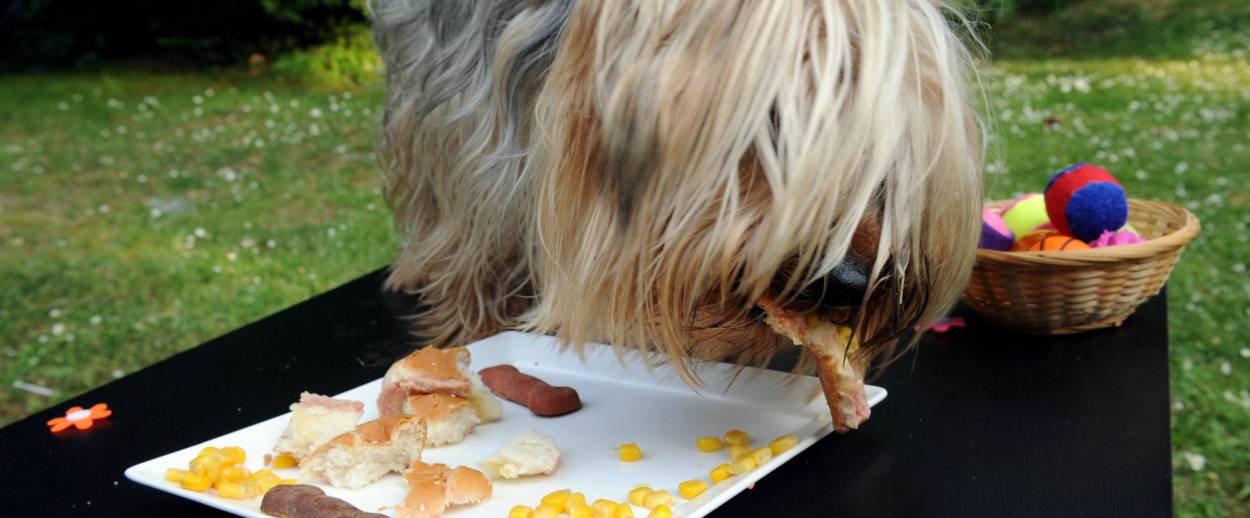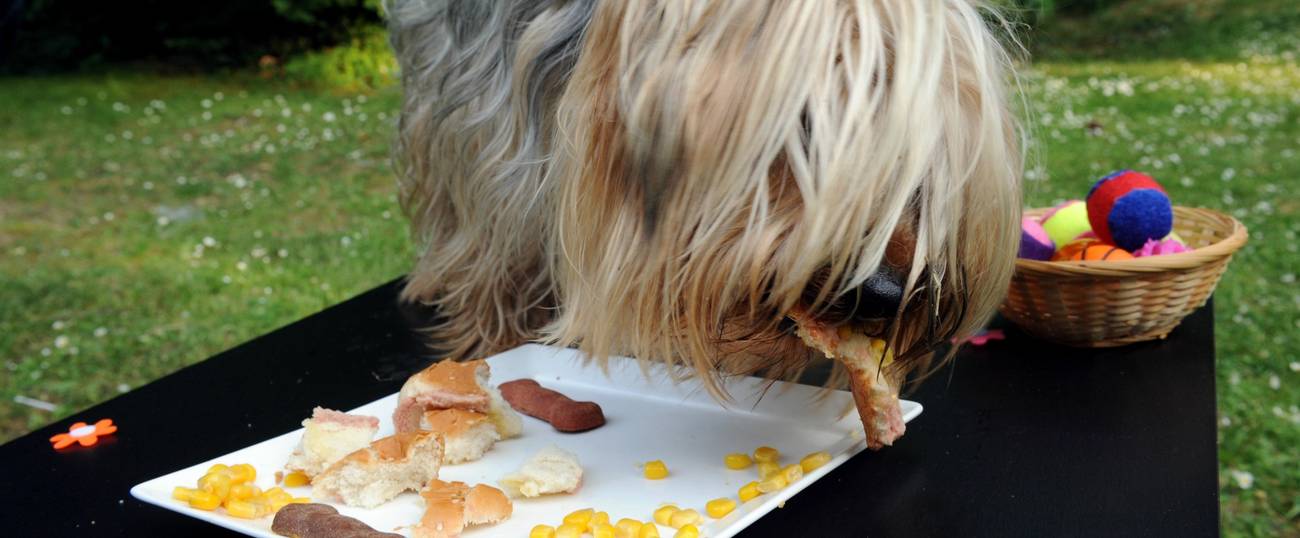Can My Dog Eat Chametz?
A guide to feeding pets on Passover




Pets are not bound by halakha and therefore do not keep kosher—indeed, the Torah even says explicitly that treyf meat should be “thrown to the dogs.” But Jewish law tells us that it is prohibited to own or derive any “benefit” from chametz during Passover; this includes feeding chametz to pets. The same line of thought applies to mixing milk and meat: Even though pets do not have to keep kosher, their food must either be milchik or fleischik, because humans cannot derive any benefit from the mixing of both, according to Chabad.
So the relevant question therefore becomes not what the pet can or cannot eat, but what is permissible for the human to feed their furry or feathered friend. Luckily, as with most questions about Jewish law, we’re not the first to have wondered this. Various sources have weighed in, including the OU:
Since it is forbidden to own or benefit from chametz during Passover, food that contains chametz may not be fed to pets. However, it is permitted to give pets food that contains kitniyot.
If one is unable to procure pet food that does not contain chametz, some rabbinical authorities allow for a sale, which would transfer to a gentile the ownership and responsibility of caring for the pet. Ask your Rabbi for guidance.
Kitniyot is the category of food, including corn, rice, peas, and beans, that Ashkenazim consider forbidden to eat on Pesach but that Sephardim eat. So you can feed those to your pets in a pinch.
It may be hard to find kosher-for-Passover (i.e. grain-free) pet food, so I asked a higher authority. According to a Petco representative with whom I had an enlightening online chat this week–is there anything we won’t do for our readers?–the store carries both grain and non-grain pet food. Unfortunately, my interlocutor couldn’t give me the names of any specific kosher-for-Passover pet foods, so you may have to follow up in person.
There is at least one brand available nationally that is specifically Passover-friendly: Evanger’s, which is owned and run by a Jewish family. I spoke to Chelsea, whose mother started the company when she was at her neighbor’s house during Passover and saw that her neighbor was feeding the dog in the garage. She asked why the dog had to eat in the garage, and her neighbor told her it was because she couldn’t have his chametz-containing pet food in the house during the holiday. They saw a spot in the market, and Evanger’s was born. Now, it is the only pet food company with Passover pet food endorsed by the Chicago Rabbinical Council–it has to be “endorsed,” not “certified,” because it is not human food, and indeed is emphatically not for human consumption. “What that means is the rabbi comes and does random inspections and he’ll come and check our labels and check our ingredients to make sure there’s no chametz,” Chelsea told me. “They also put out a guide to Passover pet foods, and it includes us.” Their guide can be found online here.
And if your dog will only eat one specific variety of Purina that has grain filler in it, you can–as the OU somewhat insensitively suggests–sell Fido symbolically to a non-Jew. Just pray that you get him back.
Miranda Cooper is an editorial intern at Tablet. Follow her on Twitter here.